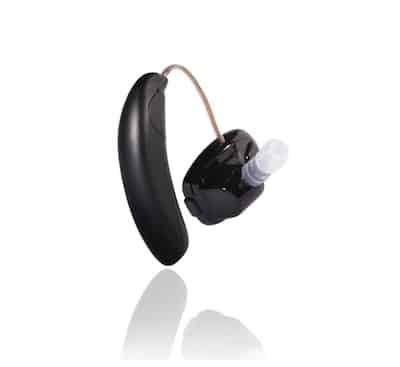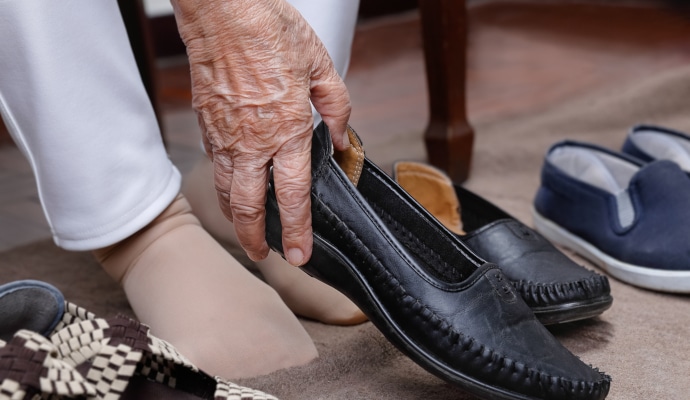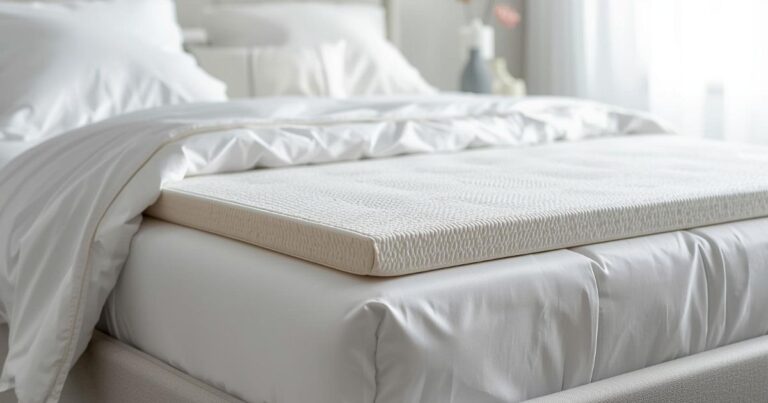Hearing loss can be isolating and frustrating for seniors, but traditional hearing aids often come with a steep price tag, sometimes costing thousands out of pocket. The good news? Affordable hearing amplifiers offer a practical alternative, providing amplified sound at a fraction of the cost.
While they’re not a perfect match for every type of hearing loss, these hearing amplifier devices can be a game-changer for older adults looking to improve communication and reconnect with the world around them. Here’s what you need to know about budget-friendly hearing solutions.

Hearing Amplifiers Are Less Expensive Than Hearing Aids
At age 65, one in three people has hearing loss. It’s the third most common physical condition after arthritis and heart disease. However, only 20% of people who could benefit from hearing treatment seek help.
Without treatment, hearing loss is associated with a 30 – 40% faster decline in cognitive abilities like memory and concentration. Untreated hearing loss is also linked to increased stress, depression, hospitalization, and fall risk.
However, the high cost of hearing aids doesn't always fit into an older adult's budget. Medicare doesn’t cover hearing exams, hearing aids, or exams for fitting hearing aids.
Hearing Amplifiers Are An Affordable Option for Seniors
We found a New York Times article by Paula Span about less expensive hearing aid alternatives that can help older adults hear better. When just one hearing aid can cost $2,500 or more, it’s no wonder seniors are turning to more affordable hearing aid options. These alternative devices are called personal sound amplification products (PSAPs).
Hearing amplifiers are much less expensive because the FDA doesn’t regulate them. That means they aren’t required to meet specific technical or performance standards. Some may work better than traditional hearing aids, but others are just a waste of money (like some found in drugstores).
Another benefit of PSAPs is that they can be purchased by anyone and don’t require referrals, custom molds, or expert fittings like traditional hearing aids.
VIDEO: Hearing Amplifiers vs Hearing Aids
Hearing Amplifier Recommendations From an Audiologist
In the New York Times article, an audiologist from Johns Hopkins tested several hearing aid alternatives.
Three PSAPs showed impressive results during the testing, but one requires a smartphone. Here are the two devices that don’t require a smartphone.
$349 Soundworld Solutions CS50+
- Over-the-ear design
- Uses rechargeable batteries with an 18-hour battery life
- Ready to use out of the box — no smartphone required for setup or use
- Optional: Pairs with a smartphone app for further customization
$300 Bean Quiet Sound Amplifier T-coil Platinum
- In-ear design
- Long battery life (10-12 days)
- Ready to use out of the box — no adjustments needed
- Comes with seven eartips of different sizes and materials for fit and comfort

Comparison Table: Hearing Amplifiers vs. Hearing Aids
| Feature | Hearing Amplifiers | Traditional Hearing Aids |
|---|---|---|
| Cost | $50–$500 | $1,000–$6,000+ |
| FDA Regulation | Class I (general sound boost) | Class II/III (medical devices) |
| Custom Features | Limited (volume/preset modes) | Tailored to specific hearing loss |
| Best For | Mild to moderate hearing loss | All levels, including severe |
| Maintenance | Low (replace batteries) | Higher (professional adjustments) |
| Where to Buy | Online, retailers | Audiologist/clinic |
Hearing Amplifiers: Myth vs Fact
- Myth: “Hearing amplifiers are just cheap hearing aids.”
Fact: Amplifiers boost all sounds equally, while hearing aids are programmed to target specific frequencies for your hearing loss.
- Myth: “You don’t need a doctor if you use an amplifier.”
Fact: Sudden hearing loss could signal a medical issue—always get checked first!
- Myth: “All amplifiers sound tinny or screechy.”
Fact: Newer models have noise reduction and feedback cancellation.
The Bottom Line:
If signs of hearing loss in an aging loved one are so apparent that their quality of life is affected, it’s time to find solutions that help them hear better. If traditional hearing tests and hearing aids aren’t an option, a personal sound amplifying product is an effective alternative.
You might also like:
— Treating Hearing Loss Reduces Dementia Risk
— 10 Common Signs of Hearing Loss in Seniors
— The Best Alarm Clock for Hearing Impaired Seniors
About the Author

Connie is the founder of DailyCaring.com and was a hands-on caregiver for her grandmother for 20 years. (Grandma made it to 101 years old!) She knows how challenging, overwhelming, and all-consuming caring for an older adult can be. She also understands the importance of support, especially in the form of practical solutions, valuable resources, and self-care tips.













